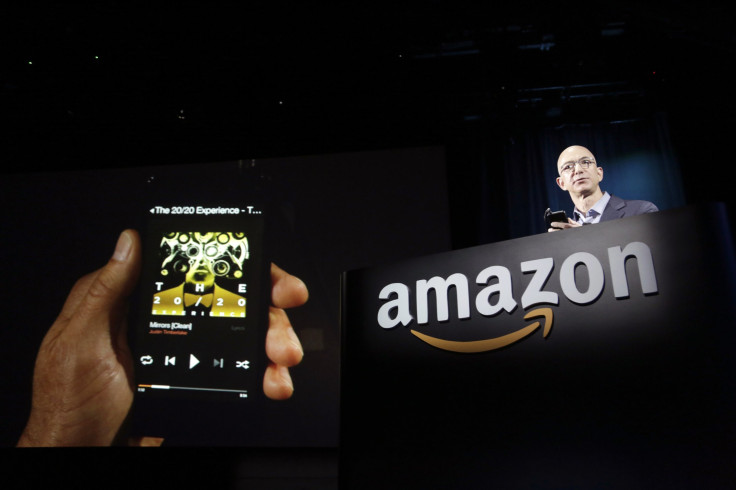Amazon Built The Fire Phone In Order To Figure Out The Future of E-Commerce

When Amazon enters a new market, be it books, movies, groceries, tablets or phones, you can bet on one thing: It will get a lot cheaper for consumers. But the company is departing from that playbook with its new Amazon Fire smartphone. The question is, why?
Amazon is famous for delighting consumers with cheap stuff while torturing Wall Street by losing money. That theme continued today when Amazon announced it managed to lose $126 million in the second quarter while sales grew 23 percent to $19.3 billion.
The reason Amazon is content losing money while selling a mountain of goods is that it's playing a very long game on the future of commerce. That's also the reason Amazon is rolling out its Fire Phone tomorrow: because commerce, like Internet use, is going mobile and fast.
Earlier this week we learned Amazon's Fire Phone will retail for $199 with a two-year contract, the same as high-end phones from Apple, Samsung, Microsoft, HTC, Google and just about everyone else. That's a departure from the past for Amazon, which made its name selling everything for less, including its own hardware like the Kindle Fire HDX, which sells for $299, while the cheapest full-sized iPad is $399.
As multiple reviewers pointed out, the Fire Phone comes with some unique features, namely four front-facing cameras that can produce a 3D effect called Dynamic Perspective, and the useful-sounding Mayday button, which gets a real-life customer service person on the line. But the bottom line on the Fire Phone overall is that it's not any better than any other high-end smartphone out there.
So why would Amazon take on Apple, Samsung and Microsoft in mobile phone hardware instead of just making its products and services work seamlessly across those platforms? Facebook's foray into a mobile OS is a cautionary tale: Launched with great fanfare with HTC and promoted at AT&T stores, the Facebook Phone was all but dead in six months. But that flop didn't hurt Facebook because it turned out its content and ads work just fine on Apple and Google-powered smartphones.
So why does Amazon think it can sell its phone for so much? In part because the company believes in the value of its ecosystem, the seamless integration of commerce, TV, movies and music it has built up over the past few years. To get consumers deeper into this ecosystem, Amazon is sweetening the Fire Phone deal by throwing in a year of Amazon Prime ($99 value) and offering 32 gigabytes of storage (the better to store all that purchased content).
Another theory: They're not trying to sell a huge number of Fire Phones. Rather, they're looking to get a more modest number of Fire Phones into the hands of Amazon power users to see if they can figure out the future of e-commerce -- which at this point doesn't look so good. Commerce, like everything else, is going mobile and that's a problem for Amazon because mobile users tend to do plenty of browsing but not a lot of buying. Research conducted by Monetate showed that while 3.15 percent of those who browse an item on PCs actually buy it, that number drops to 2.45 percent for tablets and -- the scary part -- 1.14 percent for mobile.
A lot of those mobile users are looking for the best price and end up buying on Amazon.com anyway. But the trend lines aren't good, and that's worrisome in markets where the smartphone is the primary device, not the PC. As part of its long game, Amazon needs to figure out mobile and keep it from plummeting toward zero like click-through rates in mobile adveritising. That's why Michael Mace, mobile strategist at User Testing, believes the Fire Phone is an important test bed for Amazon to bring up conversion rates through technologies like Firefly, which allow users to scan an item and buy it seamlessly.
"Sometimes little increments in usability can make a huge difference in usage," Mace said. "What happens when you integrate that into a device -- one tap and you're shopping? No one knows if that's going to be a powerful application or not. The only way you do know is to build your own phone."
Amazon is no stranger to discounting goods to build market share, which they may yet do for the Fire Phone. It has also gone into markets with crude devices only to improve them over time. Compare an early Amazon Kindle to today's Paperwhite, for example.
The Fire Phone goes on sale Friday, but don't expect Amazon to say how well it's doing. Amazon became a top-10 U.S. retailer this year but it conducts its experiments, and keeps data about its products, a secret.
© Copyright IBTimes 2024. All rights reserved.












